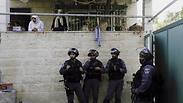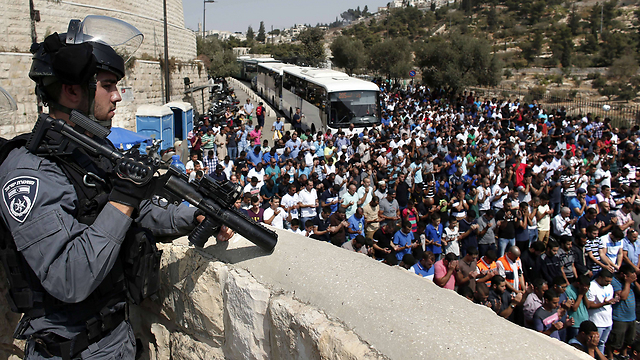
How to rationally manage the Israeli-Palestinian conflict
Op-ed: There is a lot of logic in the conflict management approach, which has proved itself since 2002, as long as we understand that it carries consequences and prices like maintaining the status quo and avoiding any unnecessary friction.
Unlike other events in the Middle East which have a limited effect on us, Syria for example, when it comes to the Israeli-Palestinian conflict Israel is probably the most significant player. Our policy influences the events just as much as Palestinian President Mahmoud Abbas' conduct, Hamas' terror, Jordan's interests or the American policy.
The Israeli policy on Judea and Samaria and Jerusalem is based on managing the conflict rather than on an attempt to solve it. There is a lot of logic in this approach, which has proved itself since 2002, as long as one understands that it also has consequences and prices which have to be paid. A rational management of the conflict requires avoiding any unnecessary act or friction with no benefit.
For example, the construction in Jerusalem. A clear distinction is required between building new Jewish neighborhoods and building Jewish homes in the heart of an Arab neighborhood. The construction of new Jewish neighborhoods in open areas is a vital and necessary interest both from a municipal aspect and from a national aspect, and we don’t have to be deterred by the world's condemnations of it.

But alongside this activity, the government is also encouraging the purchase or construction of homes in the heart of the Arab population. And so we find few families in the center of the Muslim Quarter, in Silwan, in Jabel Mukaber and in almost every other Arab neighborhoods in East Jerusalem. Such a settlement creates unnecessary friction and hatred and fails to serve any national interest, especially no interest of managing the conflict.
A conflict management policy means, among other things, maintaining a status quo on most sensitive issues. One cannot manage the conflict while drastically and unilaterally changing the existing situation.
This applies, for example, to the situation on the Temple Mount. The government announced too late and in a weak voice that it had no intention of changing the situation. Had the prime minister turned to the Muslim public in Israel and in the world a year ago and made decisive statements, it's possible that the current wave would not have started. The construction in Judea and Samaria should be treated the same way. We cannot manage the conflict and build new communities.
The issue of building communities in Judea and Samaria leads us to the issue of planning the permanent solution. The world's greatest anger towards Israel is over what is perceived as lack of credibility on our part. On the one hand, a commitment to the "two-state" solution; on the other hand, expanding the settlements. We should know that the Europeans and Americans are unfazed both by the population growth in the communities and by the construction taking place in them. But they are irritated by the fact that more lands are being taken, which they interpret as an attempt to make the diplomatic solution unfeasible in the future.
In 2004, the Americans suggested the following formula: "Let's mark the acceptable borders of each community. As long as we are talking about this delimitation, you can build as much as you like, but promise you won’t deviate from it." Israel refused. This kind of stance which makes it very difficult to continue managing the conflict.
The desire to manage the conflict instead of trying to reach a solution here and now is the right policy at this time. In this sense, Prime Minister Benjamin Netanyahu and Defense Minister Moshe Ya'alon are doing the right thing. But we are missing a clear statement that managing the conflict and maintaining the status quo are the same thing, and not just in regards to the Temple Mount.
Major-General (res.) Giora Eiland is a former head of Israel's National Security Council.










